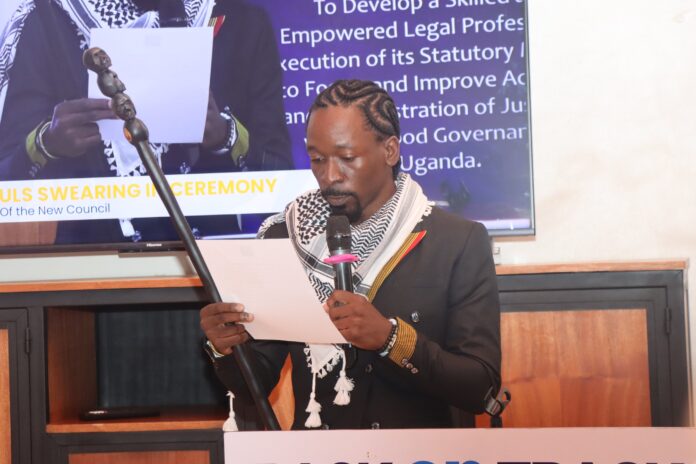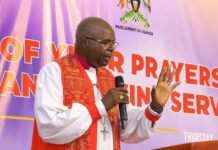The newly elected president of the Uganda Law Society, Isaac Ssemakadde, has expressed his discontent with government interference in the legal profession.
Speaking during his swear-in ceremony on October 4, 2024, held at the Fairway Hotel, Ssemakadde said that the colonial era existing in the Uganda Law Society must come to an end.
“The government is not the state, though it has a role to play within the state as outlined in the constitution, but it can never become something higher or bigger than the state that it governs,” he said.
Ssemakadde added that the law society cannot be used as a tool, branch, or department of government but must be a representative of an independent profession.
“The Uganda Law Society exists with constitutional functions, not merely government ones. We do not take our instructions from government; we take them from the constitution and the Colonial Act. Our current government has never understood the importance of these key differences, and yet they lie at the heart of the current governance crisis in the country,” he stated.
He condemned the Attorney General, Kiryowa Kiwanuka, for underestimating the danger resulting from his failure to recognize these differences and depriving the society of its independence.
“The colonial hangover must come to an end. The head of the bar is the president of the Uganda Law Society; it cannot be a member of the government superimposed. We have to follow our constitution,” Ssemakadde said.
He vowed to protect and fight the bigger societal challenges before pledging his dedication to restoring the integrity of the ULS and upholding the rule of law as part of his broader advocacy for the rights of Ugandans.
According to Ssemakadde, the Uganda Law Society is a body that the government defines within the constitution, saying it is a civic organization of professional lawyers and advocates with a guarantee to civic autonomy in the national objective and principles of state.















